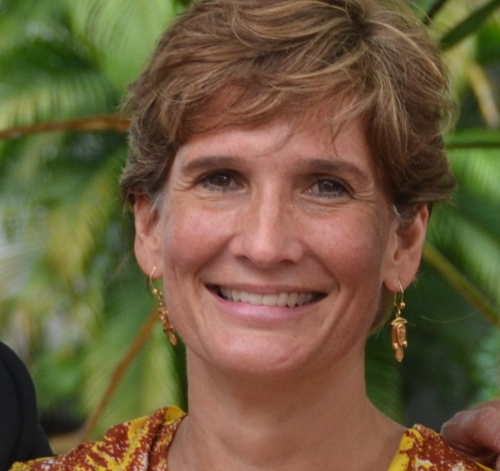Bernice landed herself a full time job with a Nigerian Internet start-up six months after arriving in Lagos; Susan was the (volunteer) 2015 Chairwoman of Small World, the massive yearly event that raises thousands of dollars for charities around Lagos; Gill came here with the intention of taking a break from her HR career, but is now knee deep in a master’s degree; Alexandra is a full-time, stay-at-home mom, busy raising her four children – which is exactly what she would be doing had they stayed in the Netherlands.All these women, like myself, are lumped together under the label Trailing Spouses or, more politically correctly, Accompanying Partners. We earn these titles by the fact that we have all followed husbands who took up job opportunities abroad.
I like neither.
Both these labels imply that we are passive participants in the decisions concerning our mobility: our partners decide and we ‘go with’.
However:
• Is it not our partners that in fact do the trailing? They are the ones who follow opportunities as they arise or accompany their employer to another location;
• Do our bread-earning partners have any more control than we do over where we go, when we leave or how long we stay? They are at the whim of their company’s HR departments and CEO’s decisions, as well as global economic trends and labour demands;
• Do we not as couples together decide on whether, where and when to move? While the decision-making power within couples varies around the world, surely the notion that we merely ‘accompany’ is out-dated.
• Are there not other aspects of our lives that are more important than the fact that we are not the breadwinner or primary reason for a move? We make significant contributions to our families, communities and to our own development, but these go unnoticed with these labels.
Let’s assume that women are active participants in the decision to move abroad. And in finding useful labels to describe ourselves, let’s start by looking at what we do rather than what we do not do.
Better Label Number 1
Accompanying partners raise their children within the context of global mobility, teaching them to deal with being new and making new friends, with learning about people who look or speak differently and about dealing with uncertainty (like not knowing when we will move again). Expat mothers (and fathers) have the rather daunting responsibility of preparing children for the 21st century global village that will be intercultural, global and rapidly changing. Rather than trailing spouses, we could focus on the global parenting skills we are masters of and call ourselves Mobile Mums.
Better Label Number 2
Some women, while overseas, throw all of their talents, skill and free time into helping others. For example, Small World in Lagos has raised 1.5 million Euros to support 150 Nigerian charities over the past decade. If all the women who worked for Small World had had paid jobs in the formal sector, none of these Nigerians would have received the financial support they got from the expat community. Furthermore, in a place like Lagos, it is talented and socially involved women who provide welcome committees for newcomers and organise community events that make life here memorable. Rather than stressing their lack of control over whether to be here or not, we could highlight their contributions to their communities by calling them Global Community Workers
Better Label Number 3
It is true that the majority of women who chose to live overseas with their working partner does not find a job overseas or ends up working in a field other than in her original career path. A recent study by Brookfield Global Relocation Services found that while just under half of assignees’ partners surveyed worked before the assignment, only 11% also worked during the assignment.
We can look at this ‘fact’ in another way: In the 21st century, fewer and fewer people have jobs that allow them to stay with the same company their whole lives. Increasingly, individuals have careers that bounce like the ball in a pinball machine. Many women on the expat trail take advantage of the opportunities provided by the places where they live and do a multitude of things throughout their lives: they work short-term contracts or part-time, in their field or in a different specialisation, volunteer for a while, take time out, do a degree or a course to perfect a new skill… No matter what they do professionally, they learn to deal with people from different cultures, learn foreign language, and manage the changing circumstances of their family.
Therefore, rather than focussing on their lack of upward mobility in one career path, we could focus on their modern flexibility and the diversity of their experiences and call them Multi-Career Expats.
To identify labels is not just a question of semantics: words affect how we think about ourselves and how we behave. These new labels indicate a mind-set in which we differentiate and define how we lead our nomadic lives: we are in the front seat of the carriage with a rein in one hand, rather than in the back of the wagon pulled by the horse and the coachman.
For the Brookfield report go to: globalmobilitytrends.brookfieldgrs.com
Diane Lemieux was born in Quebec and moved to live abroad for the first time at the age of three. That journey continued through 11 countries on five continents during which she collected 4 languages, two passports and several cultural identities. She started her career in international development but decided over 15 years ago to raise her two children and pursue her passion: writing. Today, she is author of four books including The Mobile Life: a new approach to moving anywhere and Culture Smart! Nigeria.
For more information see her portfolio: www.diane-lemieux.com or blog: diane-lemieux.com/mobilelife

